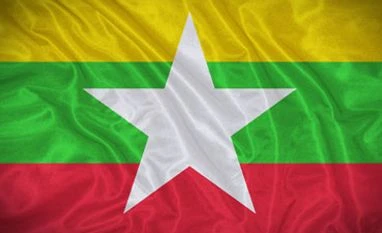Myanmar today signed a limited ceasefire with eight ethnic minority armies, in a step towards ending decades of civil war but diminished by the refusal of several other rebel groups to join the deal.
The truce is the fruit of more than two years of negotiations and was a key goal of reformist President Thein Sein before November elections likely to sweep his army-backed party from power.
Thein Sein inked the agreement in the remote capital Naypyidaw in a televised signing ceremony attended by the army chief and rebel representatives in ethnic dress.
State-backed Global New Light of Myanmar hailed the deal with the headline "Peace starts now" on Thursday's front page, adding it may herald a "fully fledged peace process that will end more than 60 years of civil conflict."
But hopes for a full nationwide ceasefire crumbled earlier this month after several rebel groups baulked at any deal without the inclusion of all insurgent forces -- notably smaller organisations locked in conflict with the army.
Representatives from China, India, Japan, the European Union and United Nations were due to witnesses the signing, state media said.
The deal will start the "political dialogue stage", said Ryan Aherin from risk analysis company Verisk Maplecroft.
But he warned the "ceasefire could be short lived" as the still powerful army has ignored government orders to stop fighting in the past.
The ceremony comes during a week of political jitters in Myanmar after election officials briefly suggested delaying the November polls - the first credible general elections in decades in the formerly military-run nation.
Authorities had cited widespread flooding for a proposed postponement, but quickly dropped the idea which was vehemently rejected by Aung San Suu Kyi's opposition.
The veteran democracy activist-turned-politician is expected to lead her party to huge gains at the polls, even though she is currently barred from being president by the junta-drafted constitution.
She was not expected to attend the ceasefire ceremony and has not specifically endorsed the process, but has said that nationwide peace would be a key goal of a government led by her National League for Democracy.
Myanmar has grappled with civil wars since the end of British colonial rule in 1948, with a myriad of ethnic minority armies battling for greater autonomy.
The army, which ruled for almost half a century, asserted its legitimacy by stamping its own concept of unity on the diverse nation, and was accused of widespread abuses across ethnic minority areas.
Bloody conflicts still rage in parts of the country, particularly in Kachin and Shan states in the north.
Major rebel groups including the Kachin Independence Army have refused to sign the ceasefire.
Top Section
Explore Business Standard
)